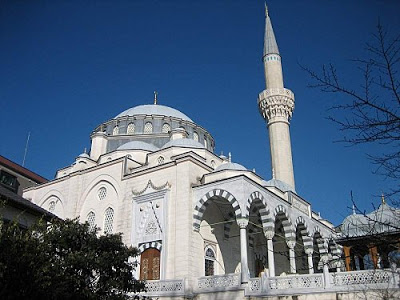Bringing anti-Muslim sentiments to a new level, Japanese hostage crisis with ISIL has widely affected the country Muslims, with mosques and organizations receiving threats of attacks for the past weeks.
“Die,” “Religion of murderers” and “I hate even the sight of Muslims,” as well as threats such as “Get out of Japan right now if you don’t want to be killed”, were some of the messages sent to mosques according to Japan Times report published on Monday, February 23.
According to the Tokyo-based Japan Muslim Association, there are between 70 and 80 mosques in Japan.
Among 16 mosques that responded to queries, six reported having received abusive telephone calls or emails.
Along with Japan Muslim association, mosque in Sapporo, Tokyo, Yokohama, Nagoya, Ichinomiya, Aichi Prefecture, and Niihama, Ehime Prefecture, reported receiving abuse.
The message coincided with the hostage crisis after the so-called Islamic State (ISIL) released a video on February 1 showing the beheading of Japanese journalist Kenji Goto.
An earlier video showed another hostage, Haruna Yukawa, meeting a similar fate.
The beheading culminated a two-week hostage drama that disturbed Japan and prompted debate about Prime Minister Shinzo Abe’s security policy.
Moreover, it sparked hostile comments against Islam and Muslims on social media since the release of the first hostages’ video on January 20.
Receiving threats, some mosques contacted local police to get advice on security measures.
Hope
Amid increasing prejudice, some Japanese offered support to the religious minority.
After a Muslim student attending a local graduate school was turned away by an apartment landlord in Sendai who vowed to refuse to rent to Muslim students, another landlord offered an apartment to the student in response.
“There is very little contempt for Muslims in Japan. We feel contented living here,” staff at the Sendai mosque said in response to queries.
Despite the increasing attacks, including abusive calls to a mosque in Nagoya, messages of support poured to the mosque which received a bouquet of flowers with a note that said, “Hoping there will be no more prejudice.”
Islam began in Japan in the 1920s through the immigration of a few hundreds of Turkish Muslims from Russia following the Russian revolution.
In 1930, the number of Muslims in Japan reached about 1000 of different origins.
Another wave of migrants who boosted the Muslim population reached its peak in the 1980s, along with migrant workers from Iran, Pakistan and Bangladesh.
Japan today is home to a thriving Muslim community of about 120,000, among nearly 127 million in the world's tenth most populated country.

